
Politics
15:46, 16-Feb-2018
Ramaphosa takes aim at corruption and economic decline
By John Goodrich
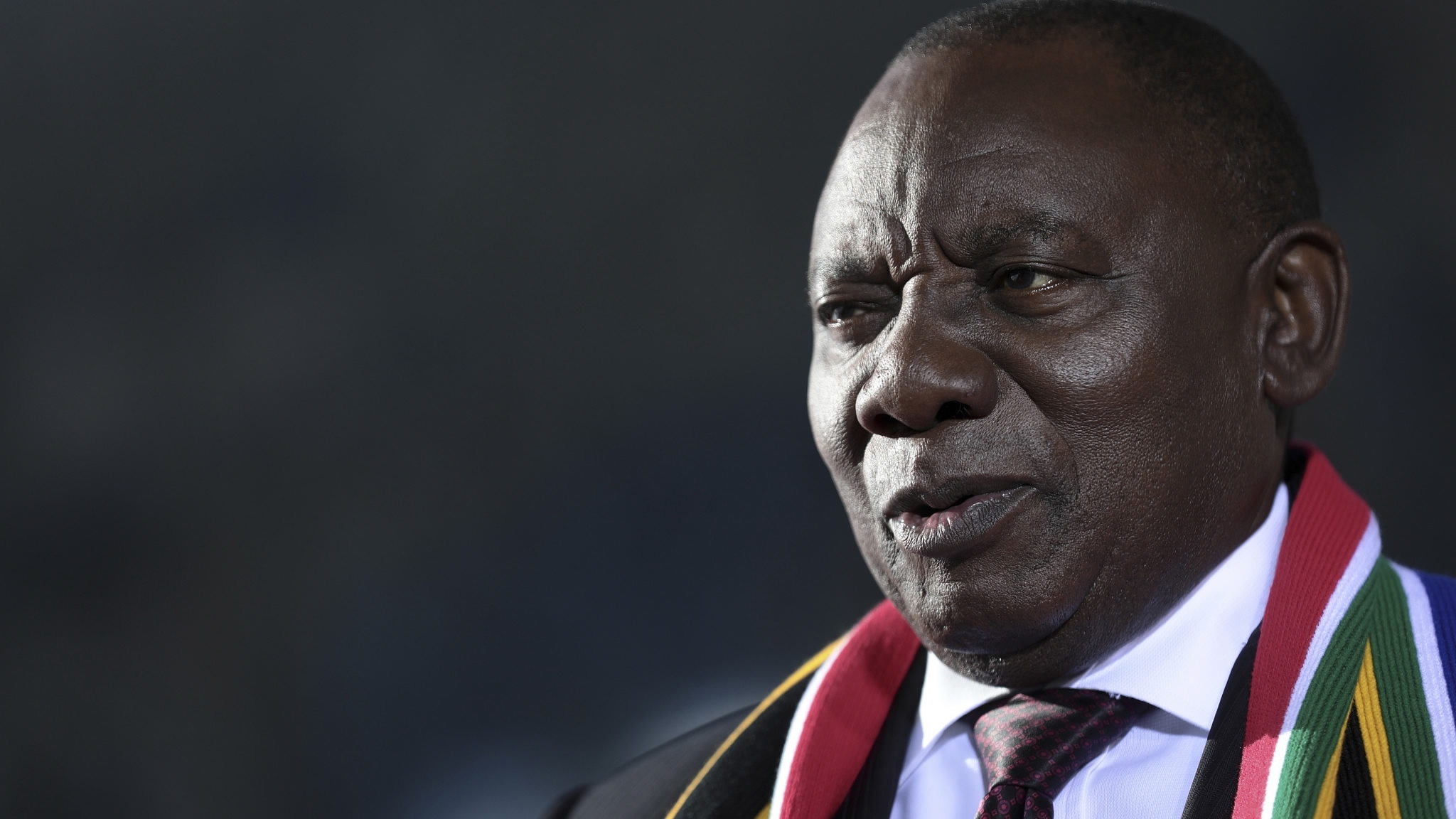
Cyril Ramaphosa vowed to crack down on corruption and revitalize the South African economy as he was sworn in to replace Jacob Zuma as the country’s president on Thursday.
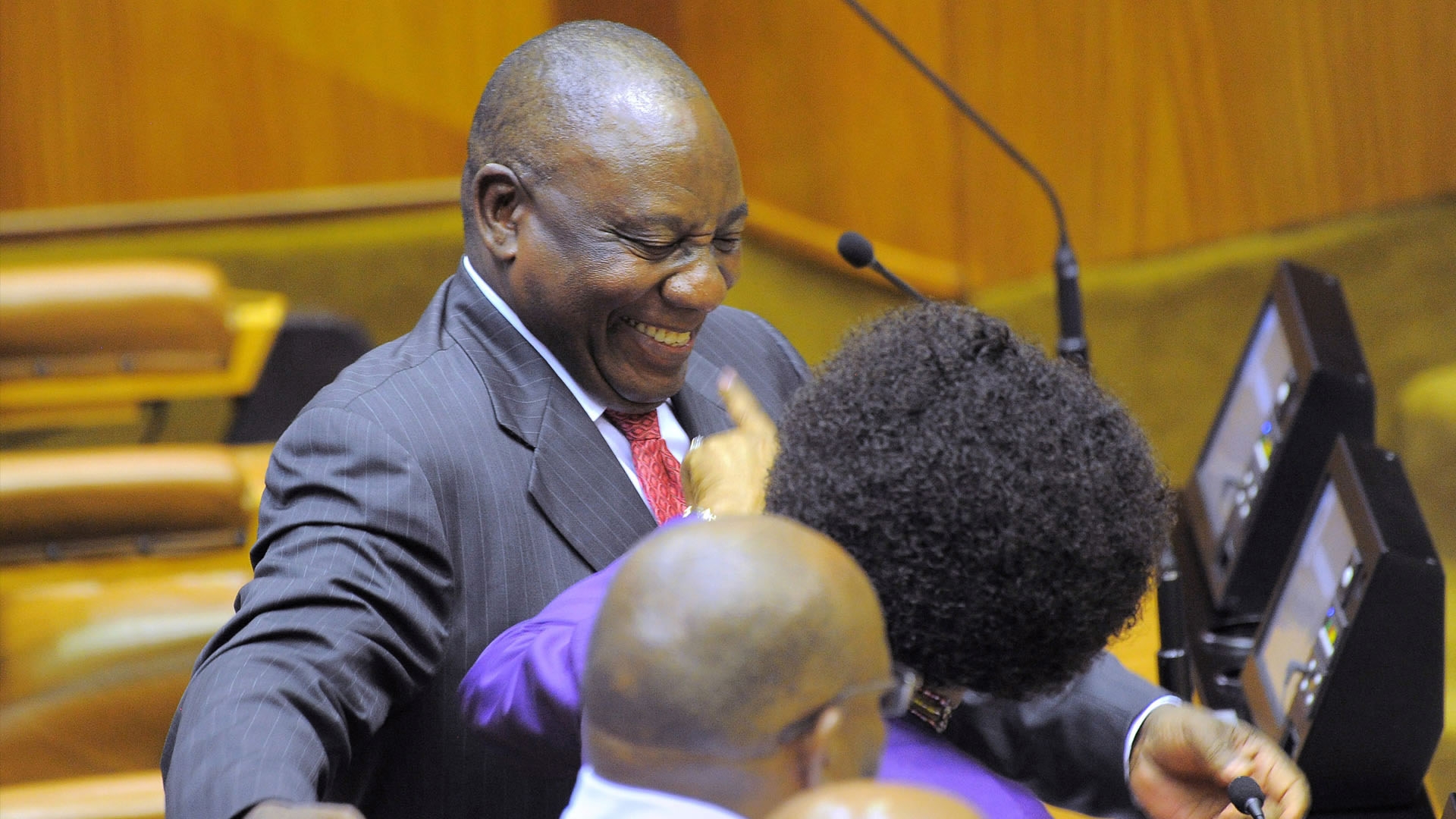
On Friday, Ramaphosa is scheduled to give the annual state of the nation speech – an occasion in which he will hope to turn a new page for South Africa.
Ramaphosa’s to-do list
Fight corruption
Ramaphosa ran for the ANC leadership in December on an anti-corruption platform, and has vowed to turn words into action as head of state.
"Issues that have to do with corruption, issues of how we can straighten out our state-owned enterprises and how we deal with state capture are issues that are on our radar screen," the new president said in brief remarks to parliament on Thursday evening.
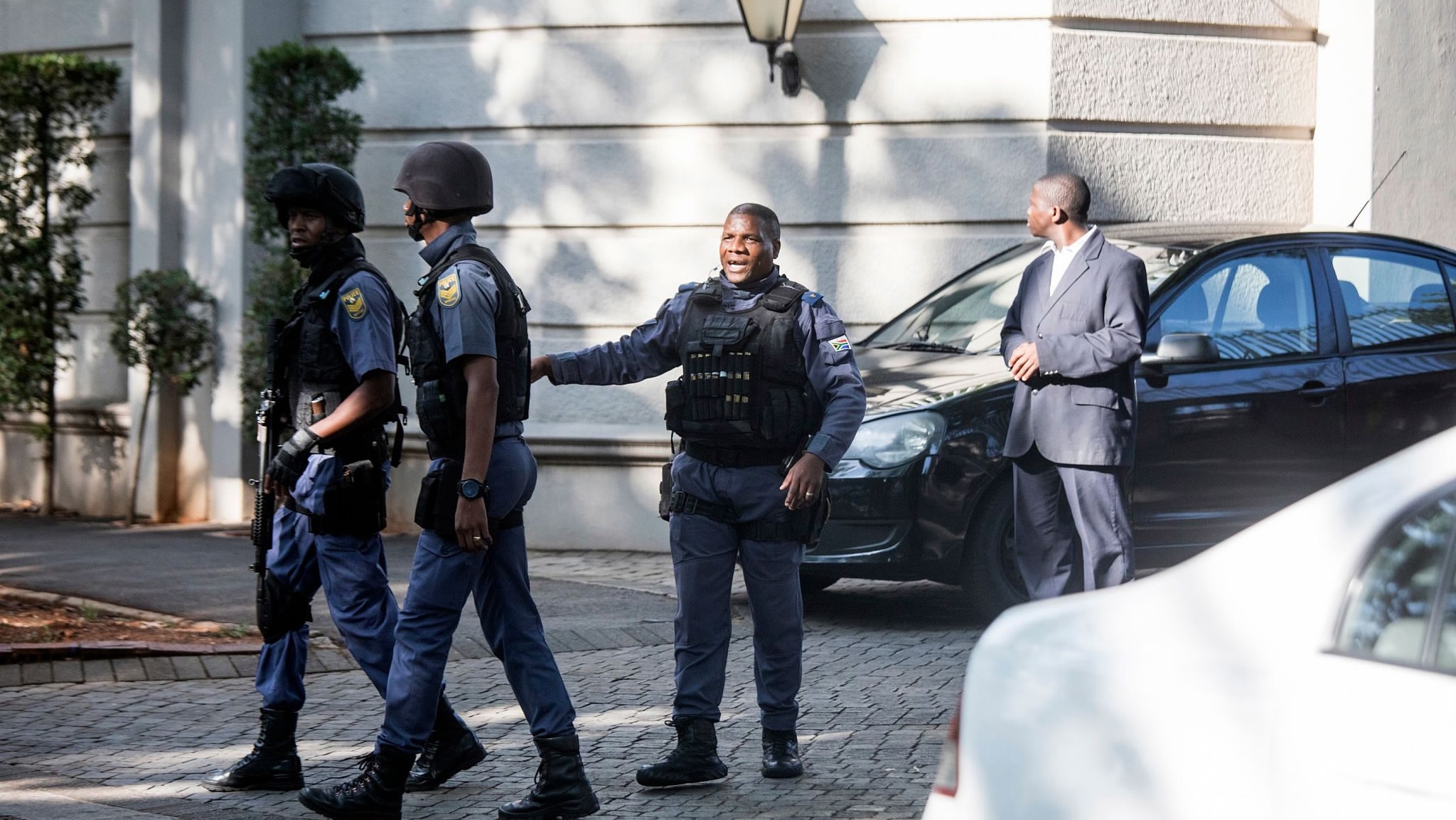
South African police on February 14, 2018 raided the Johannesburg house of the Gupta family, which is accused of playing a central role in alleged corruption under Jacob Zuma. /VCG Photo
South African police on February 14, 2018 raided the Johannesburg house of the Gupta family, which is accused of playing a central role in alleged corruption under Jacob Zuma. /VCG Photo
Former president Jacob Zuma is the focus of multiple corruption allegations. He resigned on Wednesday shortly after police raided the home of the Gupta family, his billionaire allies at the center of “state capture” claims. Zuma and the Guptas deny wrongdoing.
Chief prosecutor Shaun Abrahams on Thursday declared Ajay Gupta, one of three Gupta brothers, a "fugitive from justice" after he failed to hand himself in.
Corruption is perceived to be endemic within state enterprises, and Ramaphosa may have to take drastic action to restore confidence.
Economy, jobs, poverty
South Africa has huge natural resources but vast inequality -- revitalizing the economy will be vital to turning the country around. It slipped into recession last year for the first time since 2009.
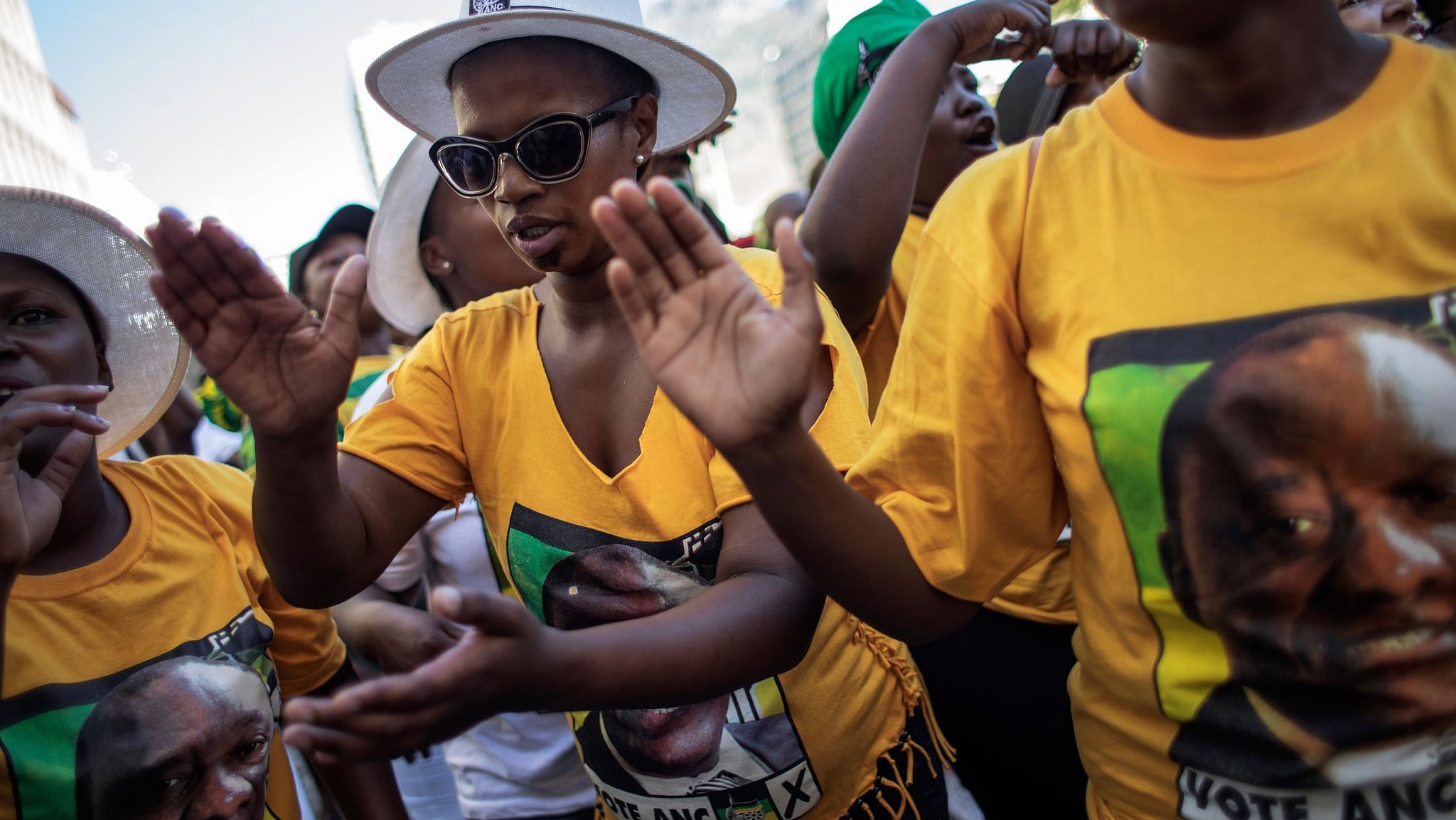
ANC supporters sing and dance after Cyril Ramaphosa's swearing-in ceremony on February 15, 2018 in Cape Town. /VCG Photo
ANC supporters sing and dance after Cyril Ramaphosa's swearing-in ceremony on February 15, 2018 in Cape Town. /VCG Photo
Violent crime is amongst the highest in the world, many people continue to live without electricity, and second city Cape Town is fast running out of drinking water. Unemployment stands at 27 percent, up from around 22 percent in the year before Zuma first took power.
Read more: South Africa drought a 'national disaster'
Ramaphosa set out an ambitious plan targeting growth of three percent for 2018 rising to five percent by 2023 when running for the ANC leadership.
Yet the International Monetary Fund has predicted growth of below one percent for 2018-19. Innovation and reform will be essential to boosting business and investor confidence and achieving real change.
Business confidence
Ramaphosa’s promise to crack down on graft, particularly in state-run enterprises, has been welcomed by foreign investors after a decline in indices that measure corruption and ease of doing business over recent years.
South Africa's main stock market index jumped by as much as five percent on Thursday, heading for its biggest one-day gain in more than three years, after Zuma’s exit.
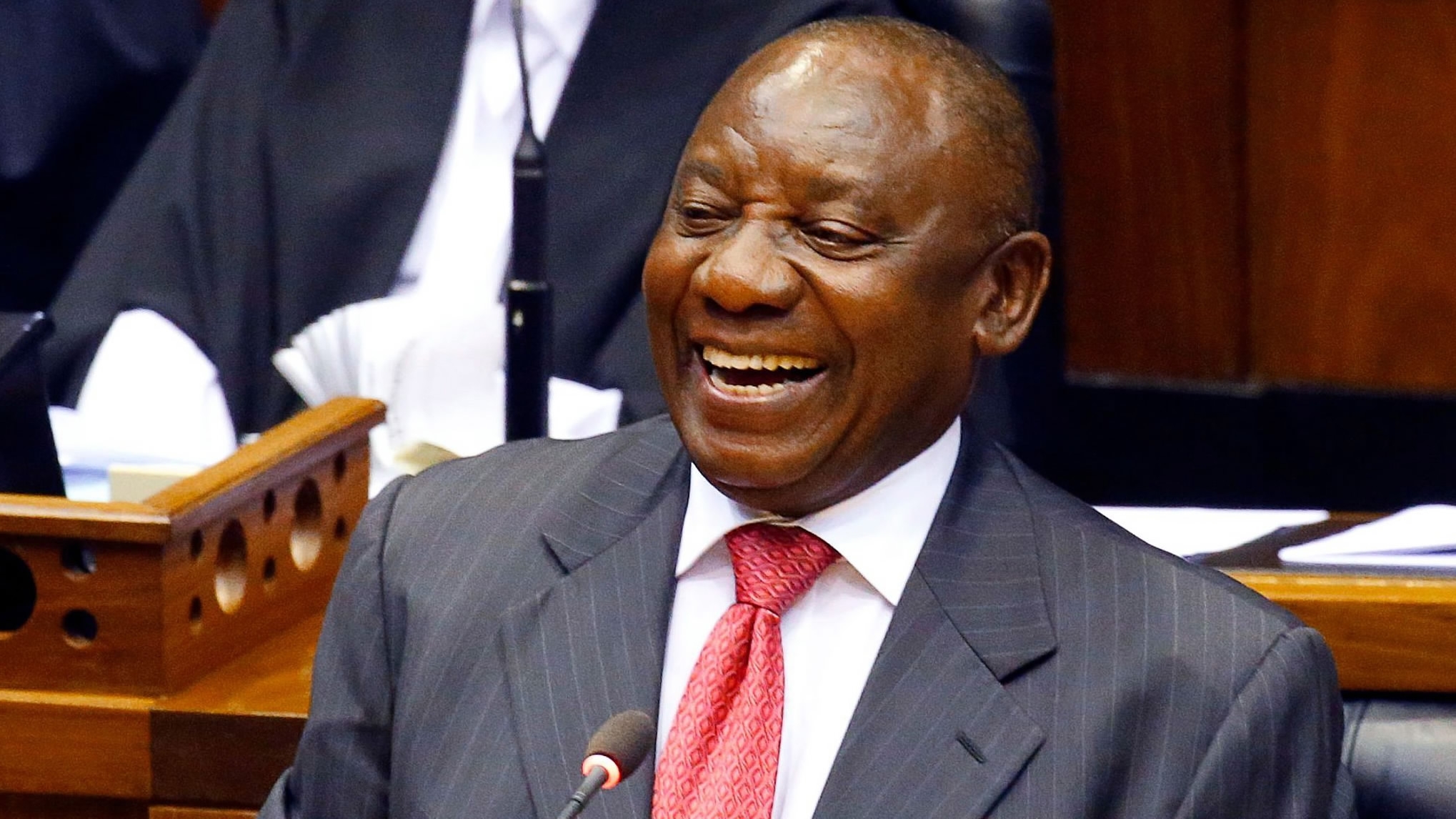
Cyril Ramaphosa smiles as he delivers a speech after being elected South African president by the parliament in Cape Town, on February 15, 2018. /VCG Photo
Cyril Ramaphosa smiles as he delivers a speech after being elected South African president by the parliament in Cape Town, on February 15, 2018. /VCG Photo
Attracting investment from home and abroad will also hinge on Ramaphosa’s strategy for growth. He is seen as pro-business and has a background to match, but has a tough task. A plan to resuscitate flagging state-owned-enterprises will be vital, with one – power company Eskom – in crisis.
Read more: South African stocks in demand
The new president will also have to balance issues like meeting the ANC base’s call for accelerated land redistribution – the return of land taken from black people during apartheid – with retaining investor confidence.
Politics
A power struggle within the ANC was laid bare when Ramaphosa was elected leader in December, narrowly defeating Zuma’s former wife Nkosazana Dlamini-Zuma.
Ramaphosa won that battle, but now must unite a party that contains Zuma loyalists ahead of elections in 2019.
Fears that poor results in 2016 municipal elections were a signal of worse to come in next year's polls probably emboldened the party to force the former president out.
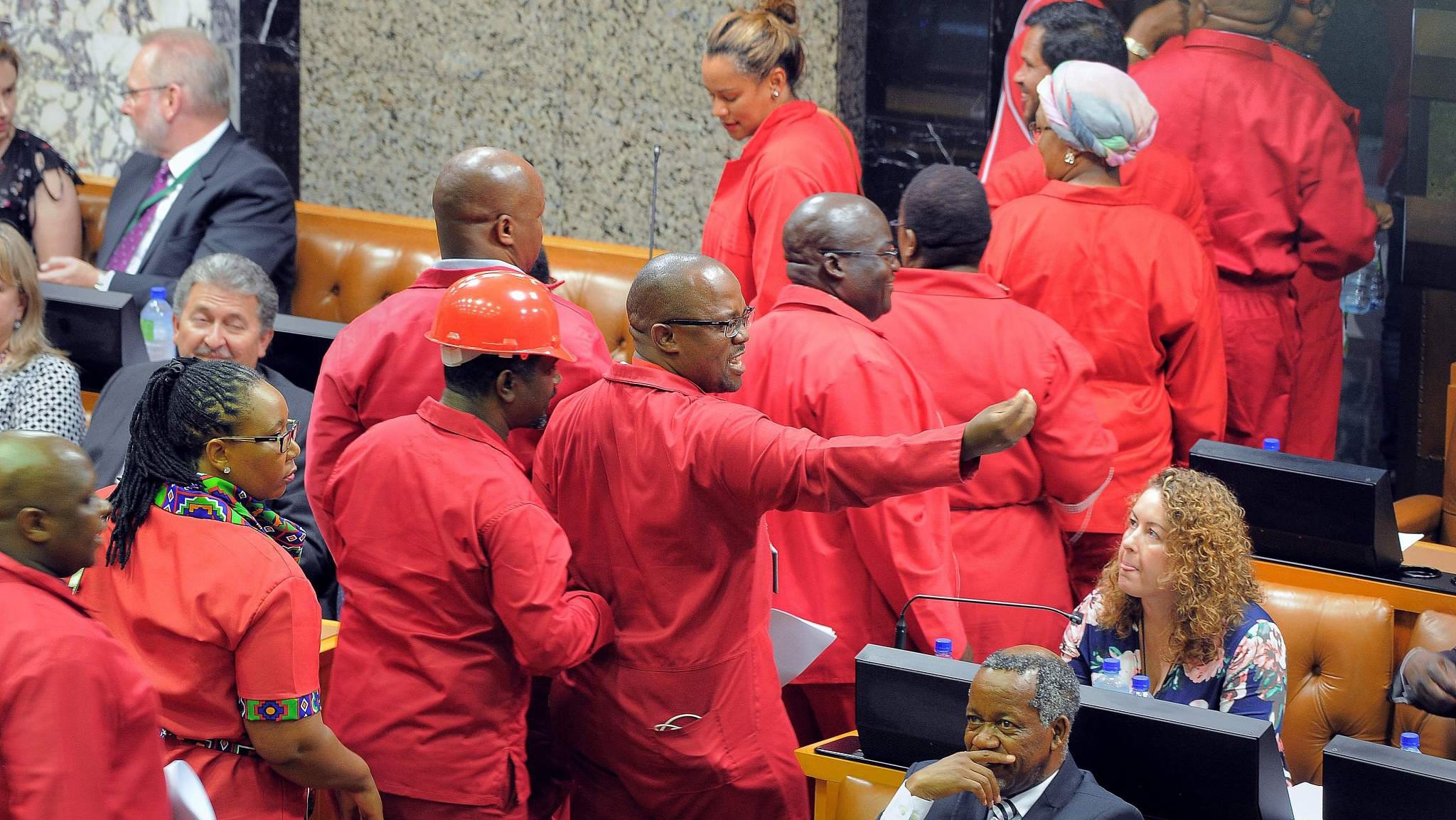
Members of the Economic Freedom Fighters party walk out of the South African parliament in protest on February 15, 2018, in Cape Town. /VCG Photo
Members of the Economic Freedom Fighters party walk out of the South African parliament in protest on February 15, 2018, in Cape Town. /VCG Photo
The party is still dominant, but as a younger generation votes and radical opposition parties strengthen, it risks slow decline.
Julius Malema, leader of the far-left Economic Freedom Fighters, led his party in a mass walkout from parliament on Thursday, saying it would not take part in the election of a new president so as not to legitimise an ANC candidate.
The ANC has held power since the fall of apartheid in 1994, but Ramaphosa is now tasked with helping it reform and regroup.
12970km

SITEMAP
Copyright © 2018 CGTN. Beijing ICP prepared NO.16065310-3
Copyright © 2018 CGTN. Beijing ICP prepared NO.16065310-3